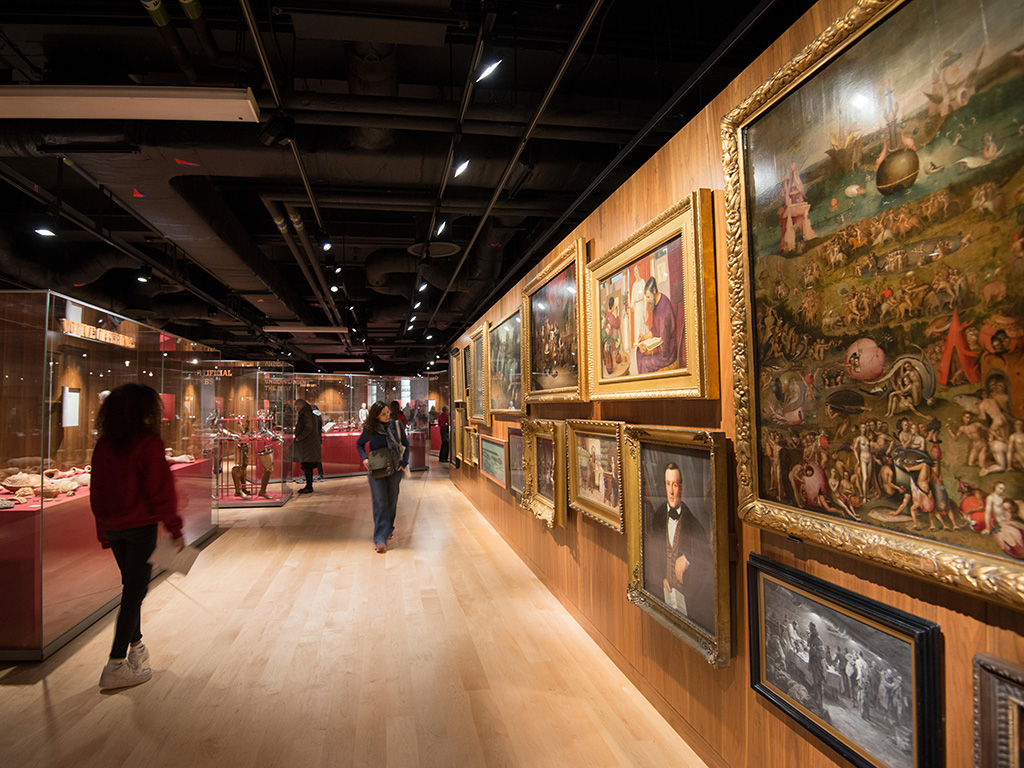
Last Friday (25 November) the Wellcome Collection, a free medical museum and library, opened and closed a Twitter thread with the question: “What’s the point of museums?” Its own reflections on this question are in part why the museum decided to close its “Medicine Man” exhibition after 15 years. It argues that “the display still perpetuates a version of medical history that is based on racist, sexist and ableist theories and language”, telling the story of a “man with enormous wealth, power and privilege”.
Many have argued, rightly, against this decision: that this is yet another example of historical vandalism, empty moral posturing or a stab at trendy progressivism. Many have argued however, also rightly, that this is part of the natural process of museum curation: museums promise permanence but are forever “in flux and in contention”.
It can be hard to hear among the cacophonous culture wars, but there is a middle ground available, a centrist position between venerating the crimes of the past and condemning any exploration of history that doesn’t align with our modern-day values.
The key is context. The problem is that museums, the Wellcome Collection included, are so very bad at it.
Take the “artist interventions” that were used to try and “give voice to the narratives and lived experiences of those who have been silenced, erased and ignored”. These should be informative, accessible, balanced, thought-provoking – yet they are anything but. One of these was a message written about a fragment of Jeremy Bentham’s skin by Dan Hicks, author of The Brutish Museums and curator of the Pitt Rivers Museum in Oxford. As my Year 8 historians would say: not the most reliable source.
At best, Hicks’s placard, as George Orwell puts it, “consist[s] largely of euphemism, question-begging and sheer cloudy vagueness”. I’m not sure most adults, let alone young people, would know how to interpret the statements Hicks uses, such as “written on the skin is whiteness” or “decentre Bentham” or “dismantle Wellcome’s enduring colonialism, its white infrastructure”. At worst it’s historically inaccurate: did the 1832 Anatomy Act that Hicks invokes really usher in the new scientific era of “‘race’ science”? He argues that “just rewriting labels isn’t enough”, but maybe if we rewrote the labels so they made sense to the average person, they could be.
Recently I had a discussion with my Year 9 class about the Channel 4 programme Jimmy Carr Destroys Art: a deliberately provocative show in which a live audience voted on whether or not to destroy controversial artworks by chainsaw, blow torch and paintball. We held our own vote on whether the show should have destroyed a watercolour painting by Hitler; the class unanimously agreed not. When questioned on this, their answers were nuanced, balanced and interesting, and ultimately came down to this: we need to preserve the past so we can acknowledge and learn from it, but that the painting should be kept in a museum rather than private ownership.
Similar arguments have been made about statues: for example, rather than destroy the likenesses of Cecil Rhodes and Edward Colston, we should also put them in a museum. Time and time again we put our faith in museums to not only be preservers of the past but to interpret and display history so we can learn rather than judge.
The director of the collection, Melanie Keen, has said that they are closing the collection because it is “very much a product of its time”, but I can’t help but think that the decision is a product of our time, when apparently no amount of commentary can counteract potential controversy. Apparently we must conceal the past, otherwise we are complicit in condoning it.
[See also: Britain’s original culture wars]





